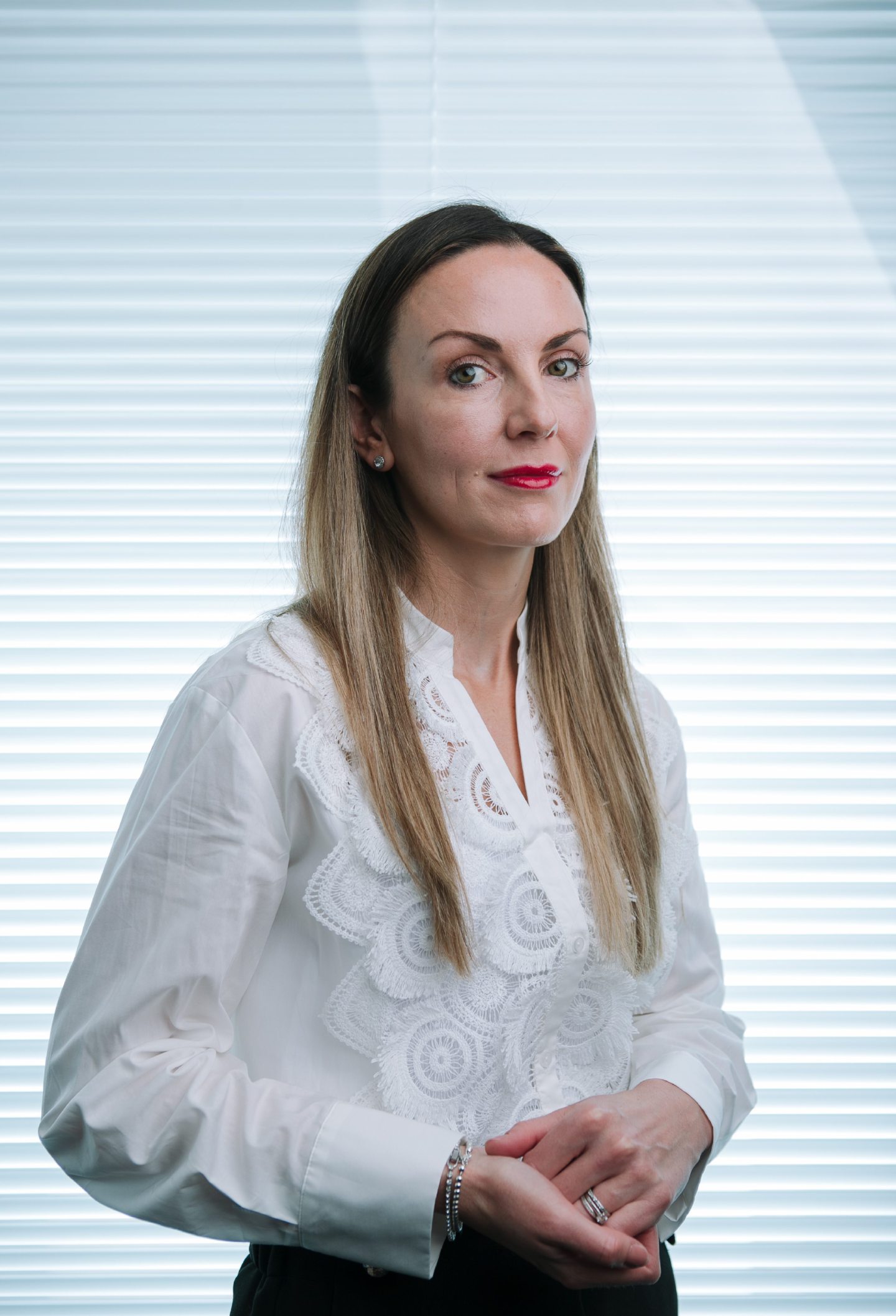
Laura Connor may have recently helped a survivor of abuse to secure £1.75 million in compensation but she remains in no doubt that money is not his nor any other victim’s primary motivation.
She said: “I’ve learned that any financial award means little to survivors without acknowledgement of wrongdoing and a proper apology. Indeed, some survivors have told me an apology is all that mattered to them. Sadly, they do not always get their apology which makes it very difficult for them to move on.”
Newly named Scotland’s Lawyer of the Year at the Scottish Legal Awards, she acted for the man, now 51, who had been abused by his foster carer, before Glasgow City Council agreed the largest compensation claim for a historical child abuse survivor.
Connor said: “This has been a deeply traumatic case. Although we achieved the highest ever award for our client, no amount of money could ever compensate for his lost childhood or the lifelong effect the abuse has had.
“He was an exceptionally bright little boy who should have gone on to have a successful career. Instead, that was taken from him in the most brutal way.”
Connor, who was last week made an equity partner at Thompsons, one of Scotland’s biggest law firms, leads the team handling the biggest ever mass action in a Scottish court, with 2,500 claimants taking action against car manufacturer Volkswagen over emissions.
The firm is also leading the case against Scottish tea company James Finlay on behalf of more than 1,000 Kenyan tea pickers who claim they have been left with devastating health problems. Despite what has been described in court as the firm’s “vexatious and oppressive” attempts to try to halt the claim in Africa, Connor, 39, a mum of three, remains confident.
She said: “The past week has certainly been eventful. I’m delighted our work has been recognised, and being made a partner is a dream come true.
“When I started out as a lawyer almost 20 years ago I never dreamed that one day I would be heading up cases with thousands of clients or taking on cases with international significance.
“Knowing that we are fighting for tea pickers living on the other side of the world, who we believe have been subjected to working conditions so appalling that they have suffered devastating health problems, is why I love my job so much.
“Those tea pickers would never get justice in Kenya. But we have worked very hard to present the evidence to Scotland’s Court of Session, and we are very hopeful.”
Tea pickers claim that oppressive working conditions, having to carry up to 60lb bags of tea leaf pickings on their backs for up to 12 hours a day just to meet targets, have left them with skeletal problems.
Aberdeen-registered multinational Finlay’s, which owns huge plantations across 25,000 acres of Kericho, Kenya, is one of the biggest tea and coffee suppliers in the world, with Tesco, Sainsbury’s and Starbucks among its customers.
Connor said: “It’s a highly unusual case, one of a kind but Thompsons has a long history of fighting for workers’ rights. This was a case we believe needed to be heard in the
Scottish court. We are delighted judges agreed with us.”
The lawyer, who started at Thompsons as a teenage Strathclyde University student on work experience, headed up mass claims for mesh-injured women and patients injured by hip implants.
But working on historical child abuse cases has, she said, been the most harrowing, including cases linked to Celtic Boys Club. More than two dozen alleged victims of historical child abuse are suing Celtic FC, arguing the club was inextricably linked to the boys’ club and did not do enough to protect them in the ’70s and ’80s. A number of officials at the boys’ club have already been convicted of abuse.
Thompsons has used a new “group proceedings” law to bring the action against Celtic which insists the boys’ club was a separate entity. The case will resume in December.
Connor said: “When you listen to what happened to the survivors in historical abuse cases, it is of course among the most harrowing of jobs and we do need special support to help us cope.
“Our firm are the first in Scotland to use the new group proceedings law with came into force two years ago with our Volkswagen, Kenyan and Celtic Boys Club cases.
“The new rules mean we can bring group actions which allows cases with the same details to be heard as a group. Once the cases reach a certain point, we can then concentrate on individual claims. It shortens the length of time cases can take.
“Being able to have a great deal of these cases dealt with remotely has also been a huge improvement for everyone concerned. Previously, it meant travelling a whole day, sometimes for hearings which lasted just a few minutes.”
While the new rules reduce the time cases take to reach court, Connor said group rulings could also have a devastating effect, like in the case of the Lagarie children’s home run by the Sailors’ Society charity in Rhu, Argyll.
Last June, Lady Carmichael dismissed allegations from a dozen former residents claiming they had been subjected to systematic abuse because the alleged abusers, William and Mary Barrie, were dead so could not answer the accusations.
Connor said: “That was a devastating ruling and one which will affect similar cases in future. Our clients always knew that could have been a possibility but having to tell them was still deeply upsetting for all of us.
“We can only move forward with other cases and continue challenging rulings like these where we can. Thankfully, the Scottish Government redress scheme can examine cases like that, and we offer our clients a free service to process their claims.
“Scotland has been most progressive tackling historical child abuse. Removing the three-year time bar on abuse cases five years ago was one of the most far-reaching pieces of legislation so far, allowing cases that would never have previously got to court to now have a chance of being heard.”

Enjoy the convenience of having The Sunday Post delivered as a digital ePaper straight to your smartphone, tablet or computer.
Subscribe for only £5.49 a month and enjoy all the benefits of the printed paper as a digital replica.
Subscribe © Andrew Cawley
© Andrew Cawley